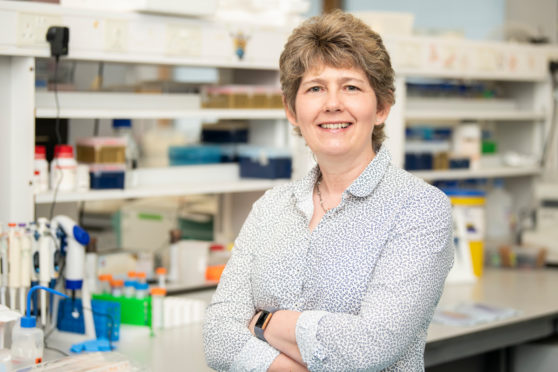A new study conducted by an Aberdeen academic has found that male breast cancer in Scotland is at a 25-year high.
Professor Valerie Speirs was appointed to examine the trend after Aberdeen University reached a £4.5 million fundraising target to transform cancer research in the north-east.
She has now published a study into the number of men in the country who have been diagnosed with breast cancer.
With nearly 500 cases to analyse, they have one of the largest numbers of male breast cancer studies in the world.
Cases have risen continuously for the last 25 years, almost doubling from 1992 to 2017, from 0.8 cases per 100,000 men to 1.3 cases in 2017.
The rising trend was said to be “most pronounced” in the north of Scotland, and stronger in rural areas.
Although the cause hasn’t been examined closely, it is thought that this could be linked to the use of pesticides on farms.
Prof Speirs said: “Rural areas are more associated with farming and perhaps there might be pesticides associated with farming.
“There’s lots of these types of agents, they can be found naturally and they can be found in pesticides.
“If you maybe have a period of exposure to a tiny amount of these chemicals over a long period of time, that can maybe exacerbate the development of breast cancer.”
Cases are still relatively rare, with around 25 men being diagnosed in Scotland each year.
The university has now awarded a PHD student an Elphinstone Scholarship to push forward research into the rising number of cases.
The increase could also be linked to the fact that people are living longer and men are becoming more aware of the issue.
Professor Speirs hopes that the research will continue to raise awareness, as many still don’t know about it.
She said: “You go into a breast clinic and you see a man there and the automatic assumption is that they’re there to support their partner – not necessarily to be treated themselves.”
“Men are maybe a bit more aware now and more likely to present to the GP if they’ve got symptoms.
“The key thing is to understand more about the biology and we’re in a very fortunate position to be able to do that, with the large number of cases that I’ve collected.
“If we’re able to understand a bit more about biology then we can maybe start to piece together parts of the jigsaw.”
